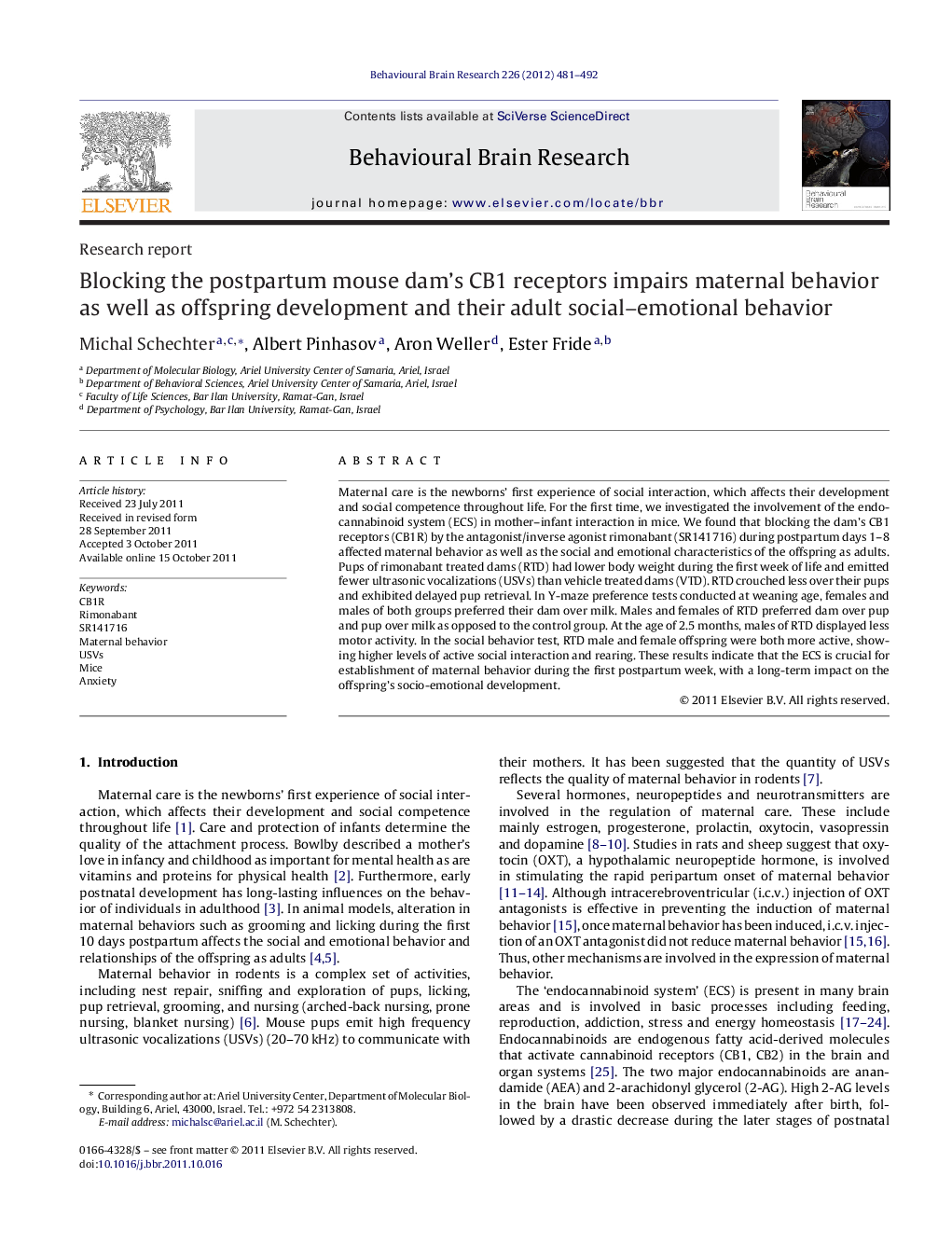| Article ID | Journal | Published Year | Pages | File Type |
|---|---|---|---|---|
| 4313620 | Behavioural Brain Research | 2012 | 12 Pages |
Maternal care is the newborns’ first experience of social interaction, which affects their development and social competence throughout life. For the first time, we investigated the involvement of the endocannabinoid system (ECS) in mother–infant interaction in mice. We found that blocking the dam's CB1 receptors (CB1R) by the antagonist/inverse agonist rimonabant (SR141716) during postpartum days 1–8 affected maternal behavior as well as the social and emotional characteristics of the offspring as adults. Pups of rimonabant treated dams (RTD) had lower body weight during the first week of life and emitted fewer ultrasonic vocalizations (USVs) than vehicle treated dams (VTD). RTD crouched less over their pups and exhibited delayed pup retrieval. In Y-maze preference tests conducted at weaning age, females and males of both groups preferred their dam over milk. Males and females of RTD preferred dam over pup and pup over milk as opposed to the control group. At the age of 2.5 months, males of RTD displayed less motor activity. In the social behavior test, RTD male and female offspring were both more active, showing higher levels of active social interaction and rearing. These results indicate that the ECS is crucial for establishment of maternal behavior during the first postpartum week, with a long-term impact on the offspring's socio-emotional development.
► We investigated functions of the mouse dam's endocannabinoid system (ECS). ► Blocking CB1 receptors on postpartum days 1–8 affected mother–infant interactions. ► Offspring social and emotional characteristics as adults were also affected. ► Thus the ECS system appears to be essential for establishment of maternal behavior. ► Maternal ECS impacts long-term offspring's socio-emotional development.
